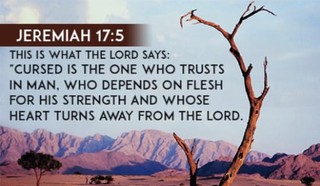
- Recent Translations
- All Translations
Jeremiah 17:2
Share
Settings
Jeremiah 17:2 Meaning and Commentary
Whilst their children remember their altars
Which is a further proof of their long continuance in idolatrous practices, and a fresh witness against them; they trained up their children in them; who, when grown up, could not forget them, but imitated them, and went on in the same evil ways. Some render the words, "as they remember their children, so they remember their altars F9, and their groves, by the green trees upon the high hills"; they had the same love to their idols, and the worship of them, as they had to their children. This sense is received by Kimchi F11; yea, they had a greater affection for their idols than for their children; since they made their children pass through the fire to Moloch, and burnt their sons and their daughters to Baal. The Targum renders it, "their groves under every green tree": see ( Jeremiah 2:20 ) ( 3:6 ) . Kimchi and Ben Melech connect green trees not with groves but with altars; and take the sense to be, that their altars were by green trees; since groves and green trees were the same, and which altars also were upon high hills.
F9 (Mtwxbzm Mhynb rkzk) "sicut recordantur filiorum suorum, ita recordantur ararum suarum"; so some in Vatablus.
F11 So in T. Bab. Sanhedrin, fol. 63. 2. & Gloss in ib.
